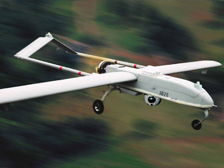
Sustained Autonomy through Coupled Plan-based Control and World Modelling with Uncertainty
Friday, 01 June 2012PANDORA is a three-year EU-funded FP7 project (€3,680,000; to King's, £354,230) that will develop and evaluate new computational methods to make human-built robots Persistently Autonomous, significantly reducing the frequency of assistance requests. The key to this is an ability to recognise failure and respond to it, at all levels of abstraction and time constant. Following the Deep Water Horizon oilfield disaster in the Gulf of Mexico in 2010, contractors are developing hover capable autonomous underwater vehicles (AUVs) for subsea inspection and intervention. PANDORA’s key goal will be to make such vehicles more Persistently Autonomous.
This project is being undertaken in conjunction with Heriot Watt University (the Ocean Systems Laboratory), the University of Girona, the National Technical University of Athens, the Istituto Italiano di Tecnologia, and four companies. The project is being led at King's by Maria Fox and Derek Long, and the RAs on the project are Daniele Magazzeni, Bram Ridder and Michael Cashmore.
You can find more more about the project's official web page.